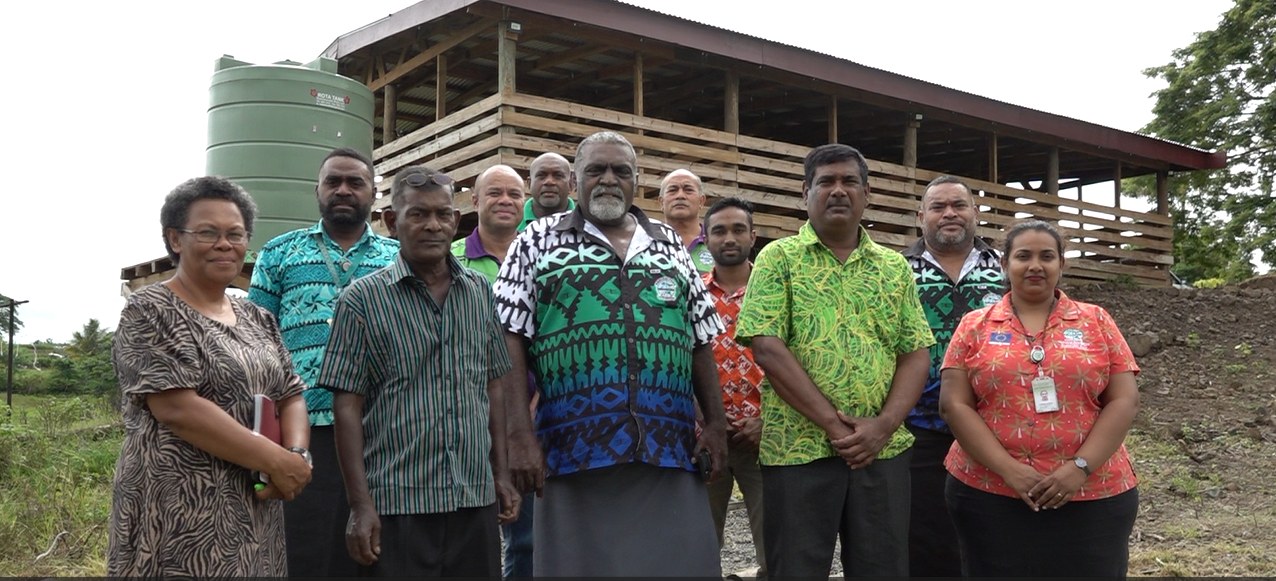BA FARMER GRATEFUL FOR TIMELY VISIT
January 8, 2025

Assistant Minister for Agriculture and Waterways, Honourable Tomasi Tunabuna, visited a goat farm belonging to Mr. Vijen Prasad in Vatusui, Ba and stressed on the need for goat farmers to also look at venturing into value added products for income generation.
In his visit to the farm yesterday, Hon. Tunabuna stressed on the need for an innovative agricultural sector.
“I would like to congratulate Mr. Prasad for all his hard work and venturing into goat farming after years of cane farming. He is also engaged in vegetable farming to supplement his income and this must be commended,” added Hon. Tunabuna.
The veteran cane farmer who is now a renowned goat farmer in his vicinity, said the visit by Hon. Tunabuna is an added boost for him and his brother.
“I am very thankful to you and your officials for this visit and now that we have just entered the new year, we look forward to venturing into other agricultural avenues as well as increasing our already expanding goat farm,” said Mr Prasad.
“I will try to explore opportunities in value addition of agricultural products to boost our income,” added Mr. Prasad.
At 49 years of age, Mr Prasad is still showing no signs of slowing down. He was assisted by the Ministry with goat shed materials at a cost of $24,000-00 and has a current stock of 150 goats.
His decision to diversify into goat farming alongside vegetable cultivation has proven to be fruitful, supplementing his income and expanding his agricultural activities.
As he continues to expand, Mr. Prasad is hopeful for a brighter future, not only for his farm but for the broader agricultural community.
His journey from traditional sugarcane farming to diversifying into goat farming and vegetable cultivation has given him a renewed sense of purpose and optimism and with the government's support and his commitment to innovation, he envisions further growth and sustainability.
He hopes that idle land will be utilised by landowners and challenged youths in the country to try out farming.
“If all the unutilized land was turned to thriving farms, we will not only boost our agricultural productivity but also significantly improve food security and create more job opportunities for our communities,” said Mr. Prasad.
By transforming idle land into productive agricultural ventures, farmers could contribute to the local economy and reduce dependency on imported goods. This shift could also help alleviate poverty, promote sustainability, and encourage younger generations to engage in farming as a viable and rewarding career.
ENDS
